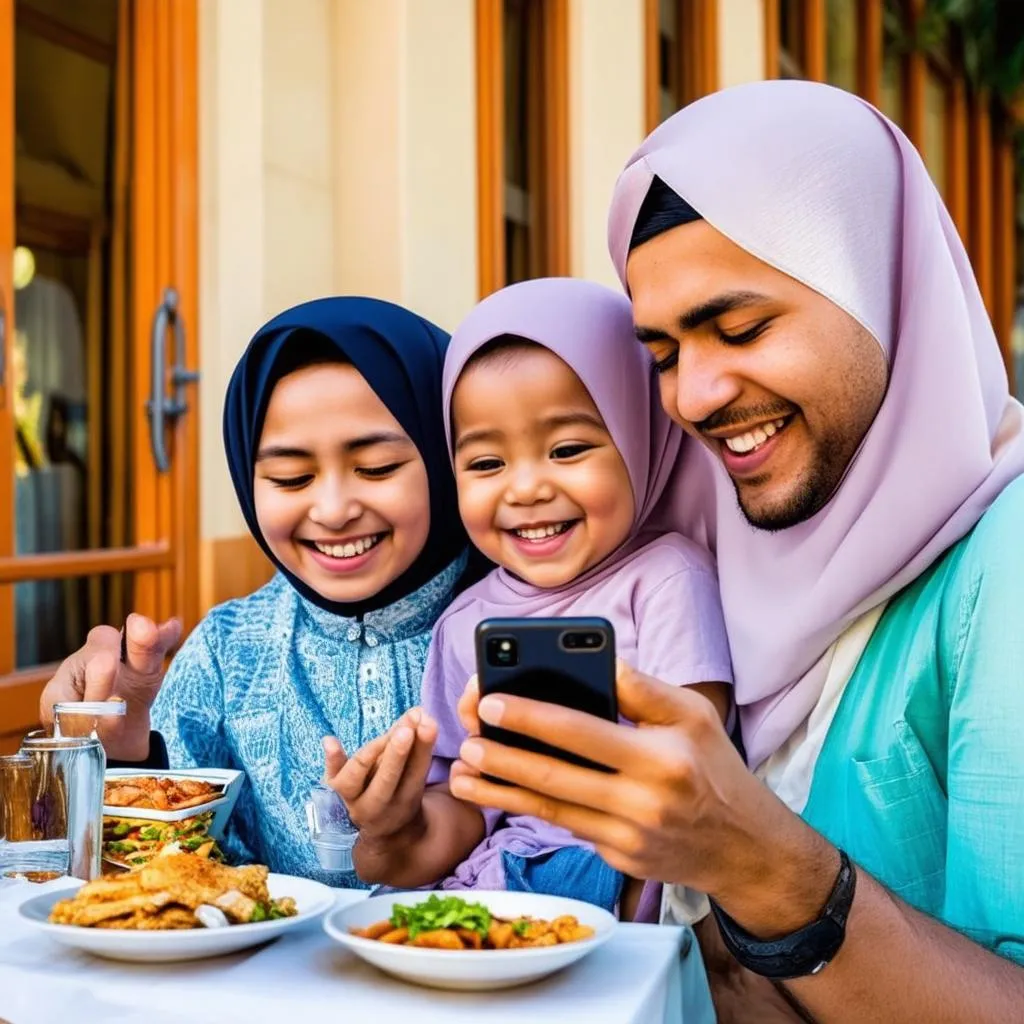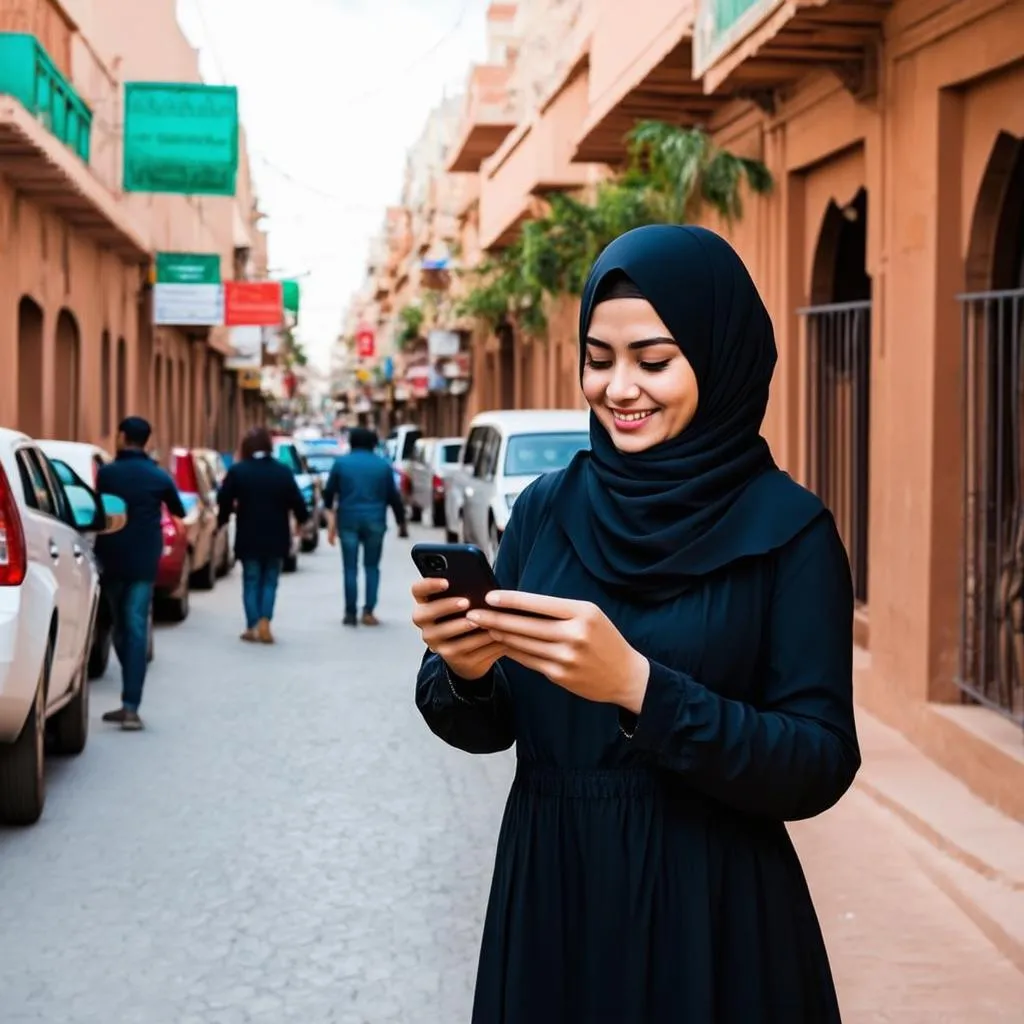Imagine stepping into a bustling marketplace in Marrakech, the air thick with the scent of spices and the sounds of bartering. You’re about to embark on a journey to the Sahara Desert, but instead of relying on outdated maps and word-of-mouth, you pull out your smartphone. A quick search on a travel app designed specifically for Muslim travelers reveals the best halal restaurants along your route, prayer times adjusted for your location, and even audio guides for nearby mosques. This, in essence, is the impact of Islam on travel technology: making travel more accessible, convenient, and enriching for millions worldwide.
The Rise of Muslim-Friendly Travel Tech
The global Muslim travel market is booming. According to the State of the Global Islamic Economy Report 2022, Muslim travelers spent an estimated US$189 billion in 2021, and this figure is projected to reach US$288 billion by 2026. This surge in demand hasn’t gone unnoticed, leading to a rise in innovative travel technology catering specifically to the needs of Muslim travelers.
Faith-Based Features for Seamless Journeys
Gone are the days of painstakingly searching for halal restaurants or mosques while traveling. Today, a plethora of apps offer features like:
- Halal Food Locators: Apps now use your location to pinpoint nearby halal restaurants, complete with reviews, ratings, and even filters for specific dietary requirements.
- Prayer Time Calculators: Accurate prayer times based on your location, ensuring you never miss a prayer while on the go.
- Qibla Compass: Finding the direction to face Mecca for prayer has never been easier, with in-app compasses providing accurate guidance.
- Audio Guides and Historical Information: Many apps offer insightful audio guides and historical information on Islamic landmarks and sites of religious significance.
Beyond Convenience: Enhancing the Travel Experience
The impact of Islam on travel technology extends beyond mere convenience. It’s about fostering a sense of inclusivity and enriching the travel experience for Muslims.
- Connecting with Local Communities: Apps often feature forums and chat functions, allowing Muslim travelers to connect with local communities and find prayer partners or travel companions.
- Promoting Ethical Travel: Some platforms prioritize sustainable and ethical travel options, aligning with Islamic principles of social responsibility.
Case Study: SalamTrips and the Power of Community
One notable example of this trend is SalamTrips, a travel platform founded by a group of Muslim entrepreneurs in London. Frustrated with the lack of Muslim-friendly travel options, they created a platform that not only connects travelers with halal-conscious businesses but also fosters a sense of community.
“We wanted to create a space where Muslims could share their travel experiences, recommend hidden gems, and support each other on their journeys,” says Amina Khan, co-founder of SalamTrips (fictional name).
 Muslim Family Using Travel App
Muslim Family Using Travel App
The Future of Islamic Travel Tech
As the Muslim travel market continues to expand, we can expect even more innovative applications of technology to cater to the needs of this growing demographic. This could include:
- Virtual Reality (VR) Tours of Islamic Sites: Imagine being able to experience the grandeur of the Masjid al-Haram in Mecca or the awe-inspiring architecture of the Taj Mahal through immersive VR tours.
- AI-Powered Travel Agents: Artificial intelligence could be used to personalize travel itineraries, taking into account individual preferences like prayer times, halal dietary needs, and preferred airlines.
- Blockchain for Hajj and Umrah: Blockchain technology could be used to streamline the Hajj and Umrah pilgrimage process, from visa applications to accommodation bookings.
FAQs About Islam and Travel Technology
Q: Are these apps only for Muslims?
A: While these apps are designed with Muslim travelers in mind, they can be beneficial for anyone seeking halal food options or information on Islamic culture and landmarks.
Q: What are some other ways technology is impacting Muslim travelers?
A: Beyond dedicated apps, social media platforms and online communities have become invaluable resources for Muslim travelers to share tips, recommendations, and connect with like-minded individuals.
Embracing the Journey with Technology as a Guide
The intersection of Islam and travel technology is creating a more inclusive and enriching travel experience for millions. Whether it’s finding the nearest mosque or discovering hidden culinary gems, technology is empowering Muslim travelers to explore the world with confidence and ease. So, as you plan your next adventure, embrace the convenience and opportunities that technology offers, and embark on a journey filled with discovery and meaningful experiences.
 Woman Using Phone to Navigate in Marrakech
Woman Using Phone to Navigate in Marrakech
Interested in learning more about how travel technology is shaping the world? Explore other insightful articles on travelcar.edu.vn and embark on a journey of knowledge and discovery!